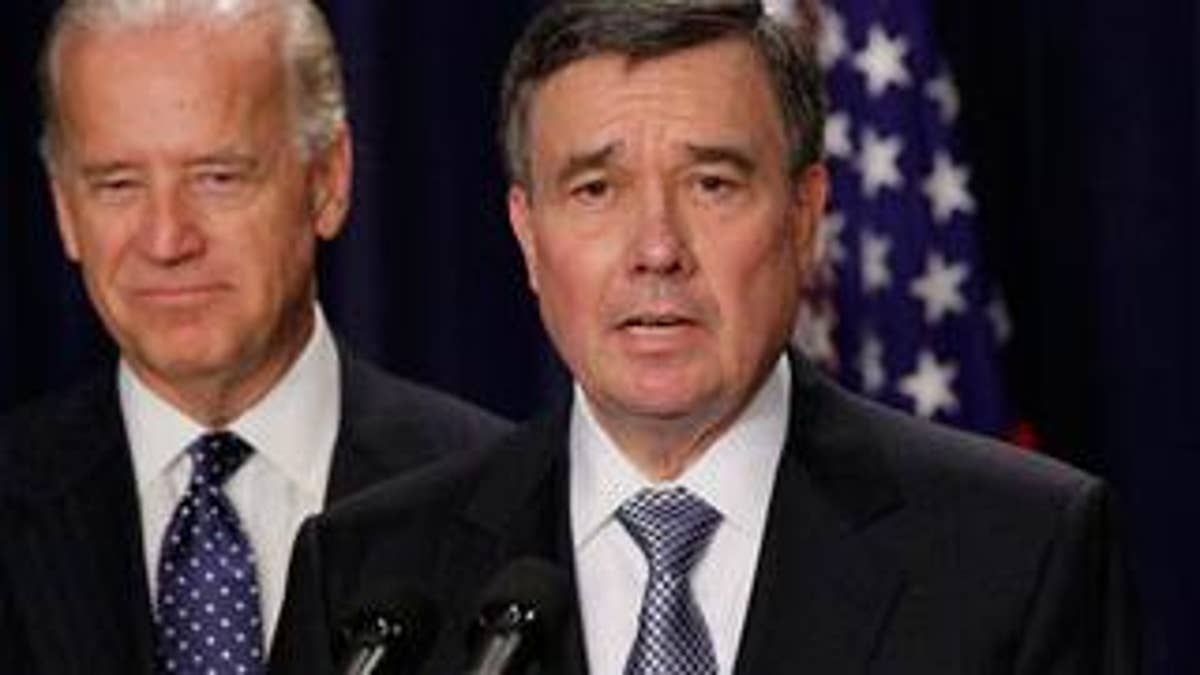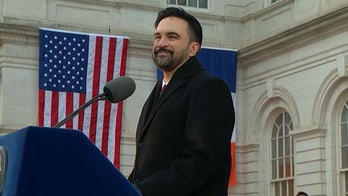
And then there were eight.
The list of policy czars in the Obama administration continued to grow Wednesday as Vice President Joe Biden nominated Seattle police chief Gil Kerlikowske to head up the drug war -- bringing the total number of czars under President Obama to eight and raising questions over the necessity of such posts.
Obama has named more policy czars to his White House team than any other president in U.S. history. As director of the Office of National Drug Control Policy Center, Kerlikowske would have authority over coordinating the nation's drug policy with several federal agencies.
Kerlikowske will also work with the vice president to oversee both the international and domestic anti-drug efforts -- paying particular attention to drug prevention along the U.S. Southwest border.
"There's no one more qualified to take on this job than the chief. He's 36 years of law enforcement experience" in four U.S. cities, Biden said Wednesday.
Kerlikowske, who served as Seattle's police chief for nearly nine years, has been on the "front lines" in the battle against drugs and will lead with "unshakeable resolve" and "exceptional skill," Biden said. "We have 32 agencies dealing the drug problem and not a lot of coordination."
Bill Clinton's former drug czar Barry McCaffrey told FOXNews.com that Kerlikowske is a wise choice.
"If you really want to understand the drug issue, go talk to any police officer with more than five years on the force," he said. "Chief Kerlikowske is experienced in Washington, he understands state and local government, and he's used to running large enterprises."
But he criticized Kerlikowske's predecessor, John Walters, for undermining the effectiveness of the post.
"I think -- to be blunt -- John Walters almost disappeared from the policy arena. He dismantled programs, he didn't have credibility with the field," he said, while commending the Bush administration overall for reaching out to Mexico in a "reasonably effective manner."
Critics, though, caution that too many czars in the Obama administration could be problematic, saying such appointments amount to nothing more than a power grab by the executive branch.
In a letter sent to Obama in February, Democratic Sen. Robert Byrd warned that such posts can "threaten the Constitutional system of checks and balances."
"At the worst, White House staff have taken direction and control of programmatic areas that are the statutory responsibility of Senate-confirmed officials," Byrd wrote.
In the case of the drug czar, however, former administration officials argue that the position is necessary -- if not essential -- in coordinating the country's drug policy with various federal agencies. Unlike former drug czars, Kerlikowske's post is not a Cabinet one, but will require Senate approval.
"It is better for the purposes of organizing and having more direct management control of the government to follow the department and agency structure of the executive branch," said Walters, who served as George W. Bush's drug czar from 2001 to 2009.
"The drug office is a compromise because you couldn't put the things that are so diverse and are frequently a portion of a regular department or agency's activities into one separate department," Walters said.
But the requirements for filling such a position are not easily definable, Walter said, in part because of the scope of agencies that are involved in directing the country's drug policy.
"The one problem with the job -- because of the span of responsibilities from the research, in addition to prevention to national security matters and law enforcement -- there's not a natural corollary outside of the drug policy office for someone to come from," said Walter.
"You can always make the criticism that somebody may not have the background in all the various parts just because the breadth is so large, but that's also true of somebody like the director of the Office of Management and Budget," added Walter.
The U.S. handling of drug trafficking and prevention has been severely criticized in recent years, and the incoming drug czar faces no easy task, critics say.
In an op-ed article published Feb. 23 in the Wall Street Journal, former presidents from Colombia, Brazil, and Mexico called the war on drugs a "complete failure."
"The revision of U.S.-inspired drug policies is urgent in light of the rising levels of violence and corruption associated with narcotics. The alarming power of the drug cartels is leading to a criminalization of politics and a politicization of crime. And the corruption of the judicial and political system is undermining the foundations of democracy in several Latin American countries," wrote the three former presidents: Fernando Henrique Cardoso of Brazil, Cesar Gaviria of Colombia, and Ernesto Zedillo of Mexico.
"Drugs are a threat that cuts across borders, which is why Latin America must establish dialogue with the United States and the European Union to develop workable alternatives to the war on drugs," they wrote.
























